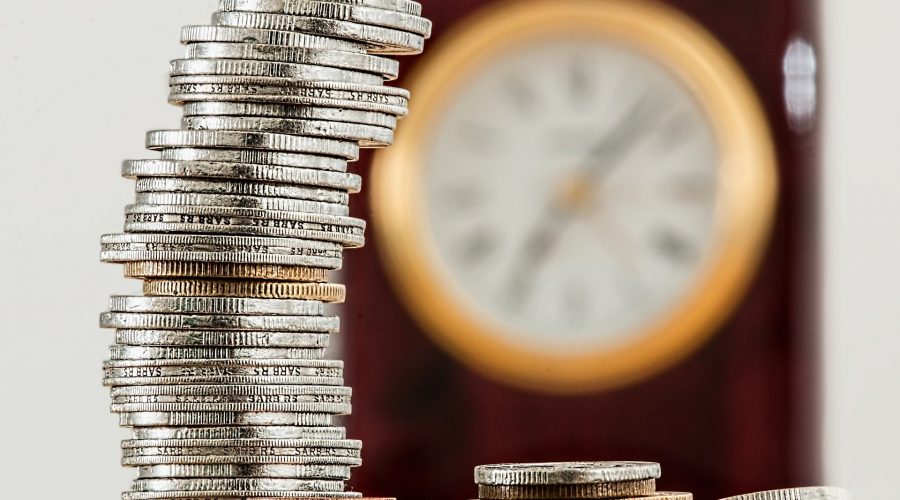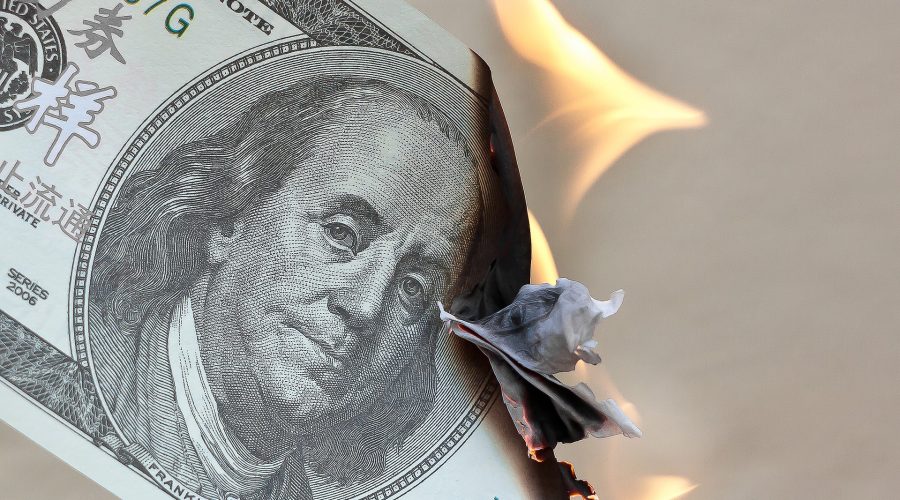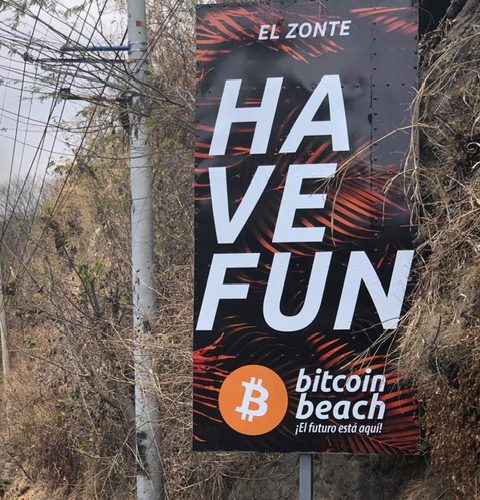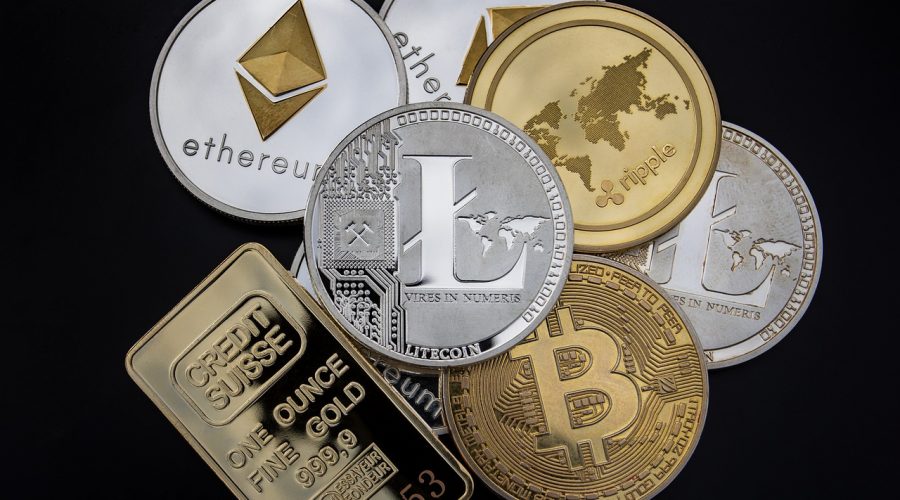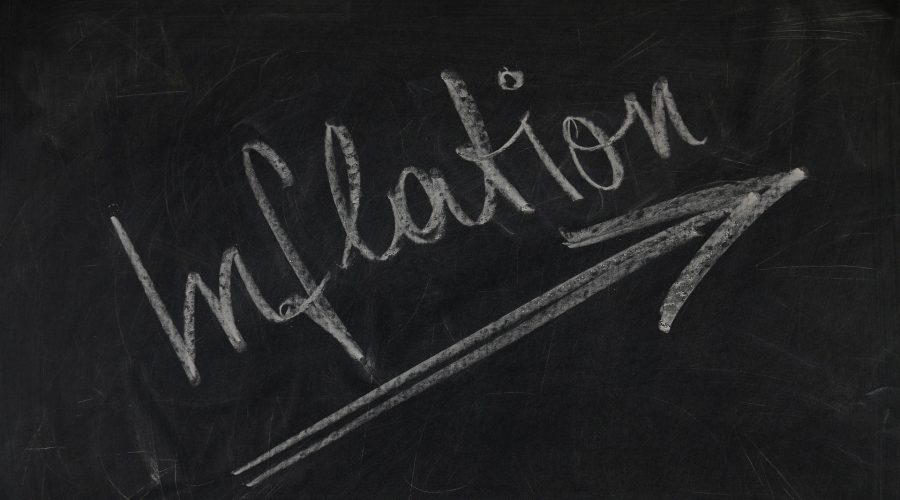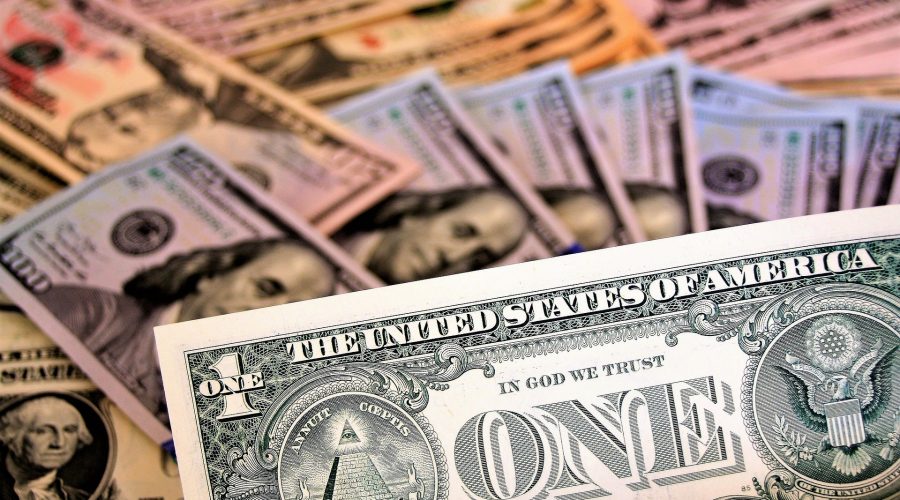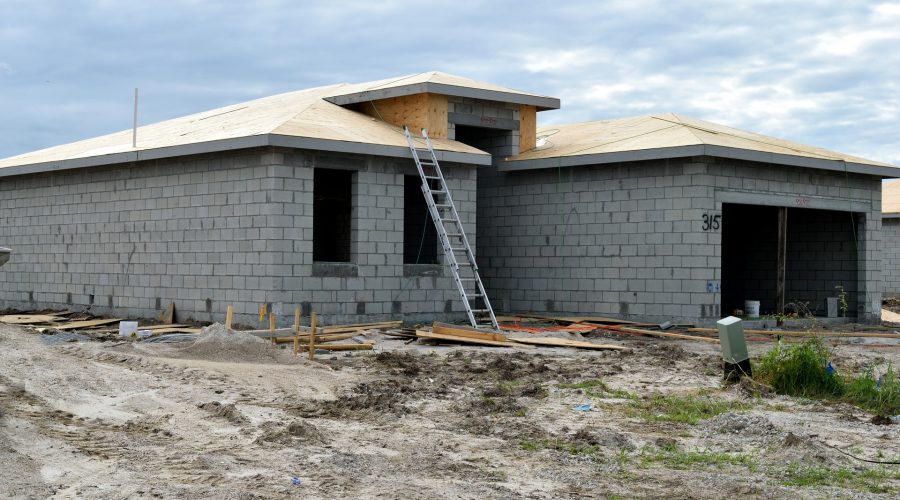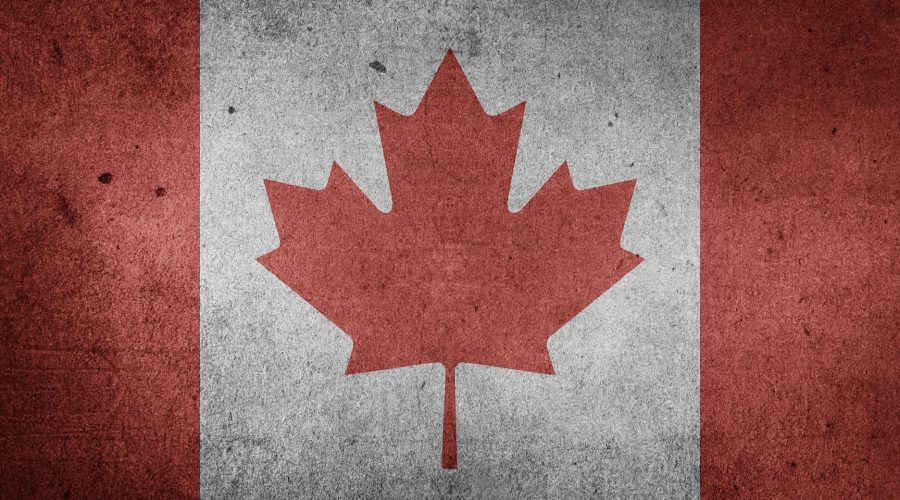Commodity Inflation Outta Control
Now this is a video and an audio podcast. And today, it’s just going to happen to be skewed a bit toward the video, because we’re going to do a little bit of charting now, I’ll try to walk you through the charts if you’re just listening to the audio podcast. But if you can get to YouTube or the video format of this, it’s going to be a little bit more helpful, but you won’t be lost. I’m going to be talking a bit about inflation and all the crazy stuff that’s going on around the world and how we’re about to hit almost hyperinflation or pre hyperinflation, as I call it. In the United States and in the Western world.
We’re going to be talking about this subject that I happen to be talking a lot about, I’ve been talking about it for a couple years, I’ve been warning people inflation’s coming, get ready get positioned, because things are going to be wonky, and they’re going to be strange. And now we’re seeing tons of wonkiness.
I want to show you some charts about, just to jump right in about what we’re experiencing in the inflationary world. So, let’s start with the chart of wheat. Look at this chart. If you look at the right side of it, we’re here we are in March of 2022. Wheat has absolutely spiked. Now there’s a huge war going on in Ukraine, and Russia. And those two places make a ton of wheat for Central Europe. So obviously, with that skirmish going on over there, there’s not going to be a lot of people thinking about plowing their fields. So those fields are going to go fallow, they’re going to go back to the way they were, they’re not going to be producing probably the kind of wheat that they were producing, which means there’s going to be scarcity and when there’s scarcity of anything, the price drives up as long as there’s demand and people need to eat. People need to eat bread, and anything else made with wheat. So you’re seeing that but it’s not just limited to wheat, it’s applying to all commodities. Take a look at oats, record high right oats go up, you need a lot of oats, there’s a lot of food that’s made with oats, there’s a lot of feed for livestock that’s made without same thing with wheat. Oats are at an all-time high. Take a look at copper all time high as well. Right? Looking at that now copper goes into construction. And I could show you charts and graphs on lumber, on concrete on all the other things, but this one pretty much embodies what’s going on in construction because you need it for wiring you need for plumbing, in some cases, you need it for a lot of different things. And if copper is expensive, everything else follows and it’s at record highs. So that’s what’s going on in copper.
Now the big one here for me is that crude oil is now back at a record high and you’re seeing it at the pumps. But the pumps are just a small place where you see it. You see it because that’s what you’re paying. But as you’re driving down the street, notice how much of your car is made out of plastic, right? Look at the door panels, look at the steering wheel, look at the dash, look at the panel, the radio, look in between the seats, the console, you open up the hood.. I had a BMW once and they made the water pump out of plastic. And it’s this is the thing that boils water, right, it’s 208 degrees. And its right around boiling water, they made it out of plastic and it blew up. And the impeller inside the pump was plastic. So much of your car is plastic. Where do you think they make plastic from.. the plastic tray? No, they may get from oil and petroleum.
And they also make fertilizer from oil and petroleum. And Russia is a big fertilizer producer and they decided the other day that they’re just hanging on to their own fertilizer just going to help their own people with their own fertilizer, which means they’re not going to be exporting a lot of fertilizer. What do you think’s going on with the price of fertilizer? It is going through the roof, and if it goes through the roof, so the cost of the products on these graphs that I’ve shown you. We are just the beginning of the kind of inflationary upward. But oil affects everything because the trucker needs oil and the trucker needs to get your cucumbers and tomatoes and goods to the store. If he has to pay too much for oil, it gets passed along to you, meaning higher prices again. Plus, now we have wage issues with those truckers because we have supply chain issues. More inflation has to pay them more the insurance is going to be more wrecks on the road, things are going to be going up in price. With all those things. I’m not saying every one of them is a major contributor. But you know, when you start to add a lot of weight, it starts to add up.
Now these are these to me are really interesting, not so much the numbers, but the trends. Everything was going along kind of hunky dory until about January of 2021. And that’s when people started to go back to work. They started to open up some of the economies. And over the last year you’ve seen that spike straight up when anything goes up at a 45-degree angle or higher. It’s very dangerous, and this one can continue to go higher. I think it’s just the beginning of the event; missionary spiral that we’re in. And I’ll just say this one thing, inflation is a tax on the poor. If you are of means and you can afford to go out and spend another $30 a week on your groceries, yeah, you don’t like it. Same thing with oil. If your gas is 60-70% higher than it was last year, yeah, you don’t like it, but it’s not going to force you to starve. But for somebody that’s a lower income, who has their last bit of money, and they are running out of money before they run out of month, they don’t have enough money to buy either that tank of gas or filling it only up halfway, or they’re buying worse food, which is going to create health problems down the road, you know, they can’t afford to buy the things they want. So that’s affected.
Now let me just go through this. This is the same kind of chart. But it basically ends at 2021 in November, and you can see this, the trends are spiking up, it’s not like they were all the way up from 19 to 20. It’s just spiking right and you’re seeing it. And once that spike starts to happen, if we don’t get it under control, and I don’t believe the Fed can get it under control, they’re going to try to raise rates at a quarter of a percent, half a percent. But inflation is running, they say at 8%. It’s running way more than 8%. Car prices, just used cars, are up 40%, gas is up 100%, our eggs have gone up, you go to the grocery store, those costs have gone up 30-40%, I don’t know where they’re getting the figure of 8%. But if you believe them, and you’re still only raising the rates by a quarter of a point, that’s not going to be able to be enough to bring down demand. And so, spiraling inflation is going to continue to happen. Plus, the Fed has painted another quarter. Now, I don’t know and I don’t want to get too wonky on the bond market and too wonky on how much money the Fed has borrowed or created, basically from you, this money out of thin air. And so, there’s $30 trillion floating around on thin air that that money, has to be paid with interest, they are borrowing it, right? Every time you borrow something, you have to pay interest on it. Well, the interest has been really low for a while, right, half a percent, 1%- 2%, depending on the length of it. And so, interest had been low, it hasn’t been very big bond payment. But all of a sudden, the Fed starts to raise rates, well, there’s going to be a huge sell off and bonds, have been up for 40 years in a row, they might go down now and pretty drastically. And that’s if they raise rates too fast, or they’re going to raise rates on themselves such that their interest payments have to go up. If interest payments have to go up where you think they’re going to get that money, they’re either going to come after you and get it in higher taxes, or they’re going to have to raise more money, print or create more money, right? What does that do? Well, the more money you put into this into something, the less scarce it is, right? So basically, it’s going to be, instead of spending $11, on a dozen roses, for example, you’re happy to spend $13, that’s going to cause more inflation, more money, which is where we’ve come from, is going to create more inflation. And so, that’s going to raise the debt even more. This is an upward spiral that the Fed and all the other central banks have gotten themselves into, in the last well, 100 years, but really specifically the last two or three years for sure. You know, I could just keep pulling up commodity after commodity after commodity. Everything is inflating.
So, what do you do about it? Well, it’s a tough one. Traditionally, you’ve been in a 60/40 portfolio of stocks and bonds. Now, it was a lot less when I was in Wall Street and growing my business, it was, you want to be more in bonds if you’re older and less bonds if you’re younger.
Now, why would you want to get 2% in a bond when inflation is running at stated rate is 8%. But realistically, it’s running to 20-25%. You wouldn’t want to do that, it’s a bad investment. But people are so conservative, and they’re so worried about getting their money back, that they’re not willing to take any risk. But the rates are so low that they’re forcing you to take risks, otherwise, you’re losing real purchasing power in your dollar. In other words, your dollar this year, if you had $1 last year, this year, it’s only worth 80 cents in purchasing power. Alright, so what do you do? Well, I don’t want to leave you hanging, right? I want to get just get you to understand what’s going on. But one thing I want to say is that an economy is measured on the productivity that it produces, right? So, if you produce a lot, your economy, your GDP, your society, your account, everything goes up. But over the last couple years, we’ve been incentivized to not produce, we were told to stay home, watch Netflix, you know, screw around at home and gain some weight, whatever. And that hasn’t been productive for our economy. But wait, we didn’t stop buying. We got free money from the government. And we kept buying and it created a supply chain problem. So, what can you do? Because that’s the question people always ask me now, I’m not you and this isn’t financial advice. But if I, were you, or if I were me, and I am me. So, I will tell you what I do. You have some money in real estate. Real estate will hedge you if the economy continues to heat up, because it’s an asset, especially if it’s a cash flowing asset, then you get some tax advantages. Depreciation up, depreciation potentially, and then phantom income and other things like that. So, you want cash flowing assets. Additionally, you want stock market assets, in my opinion, because stock markets are assets that go up during an inflationary time. But it’s timed, it’s tough to be in the markets. It is tough to time the market, buy and hold doesn’t work. We know that over time, you might have gotten lucky over the last 10 years, but really, the dollar is declining in value. It’s not that your buying power has gone up increasingly, incredibly strongly. But either way, I have a program called the cash flow machine, where we use our stock as the asset while we wait for it to appreciate. But we allow other people to give us income on the stock that we own, it’s not a dividend play, it’s more of an options play. So, I’m convinced that that’s a great place to put your money, if you’re good at business, then either invest or start or own a business. Because especially if it’s a cash flowing business, it’s going to produce cash flow for you to live on. So, and then finally, the last part is what I call tech assets, you want to have some bitcoin, maybe right? Because I think Bitcoin is a good store of value.
Now it fluctuates a lot, you’re going to have to wait for it. But it’s like putting your money in gold, like you’re going to have to wait for gold to go up to0. People have been waiting for gold to go back to where it is for 10-12 years. And here we are back to where it was 12 years ago, so hasn’t really done much in 12 years while you’ve waited, so you can’t complain. If Bitcoin goes up and down, it doesn’t do anything in the next couple of months, because it’s a longer-term store value play. And I’m a big believer in Bitcoin. But you should also have some gold and silver and other precious metals. Because those traditionally have been a great hedge for inflation, the old 60/40 bond, or stock to bond portfolio is dead, because what would happen is you would put 40% of your money in bonds. Now bonds are paying so little that there’s no real incentive to have bonds. So, they’re forcing you to take risks. And since they’re forcing you to take risks, those risk assets, as long as they keep money going into them probably will go up although right now, I think we’re having a little bit of a bear market. So, you got to be careful with the market, you have got to empower yourself. I would say “Never give up your power in your health, your wealth, or your time”. And I’m not being any different with that now. So, you need to diversify among assets, but concentrate within asset classes. And that way, you’ll be able to withstand the hyperinflation that I think is coming, we’re pre-hyperinflation at this time. Right now, it’s looking like, well, nominally 8%, up to what I think is 20- 25%, once we start going to a monthly rate where things are going up 10,12-15%, that spiral starts to increase out of control. And that creates huge problems for us, and the Fed and our economy. And it’s actually not just the US, it’s happening all over the world where they just printed money over the last couple years.
So, there’s worldwide inflation, it’s going to cause worldwide margin pressure, that margin pressure is going to lead to lower earnings, those lower earnings are going to lead to poor performance in the stock market. And we could potentially be looking at a recession here down the road fairly quickly, as we’re having this hyper-inflationary spiral go up. And that’s going to cause what’s called stagflation, a stagnant, stagnant economy, with inflation. Really bad combination. We haven’t had it since the 70s. And it was a really poor time in US history as far as economic or economic situation.
So, listen, my goal was just to empower you, and to help you make decisions going forward. Because this is now something you have to think about, it’s enough to think too much that the Fed printing money, and you just throw money in assets, but those days are over. And now you have to really be strategic about your investments. Before I go, if you could do me a huge favor? Like and Subscribe if you’re on YouTube, It helps a lot and helps me get this information to more people. Also, if you’re listening to this podcast, please take a moment like right now because if you don’t do it, now you’ll forget and go to my show and give me a rate and review please, hopefully as a five star but if you don’t like it, let me know. I’ll try to improve it. But give me a rating and review. I’d really appreciate it and we’ll get to get the word out to help more people take control of their money, help change the world just a little bit at a time. Because if we can take control of our power and our wealth, it’s going to help us a lot. Alright, thanks again.
- By Heather MacKay
- In Blog
- 0 comments

